Between Africa and Asia
Going from Ethopia to Singapore is a 180-degree turn. Marta Heisel-Wisniewska shares her rich multicultural experiences in an insightful column.
The person who has not travelled thinks his or her mother is the best cook. - African proverb.
There are many reasons why we leave our country of origin and settle somewhere new, at times thousands of kilometres away. Some seek additional education, others search for more fulfilling jobs while other like me are driven by a hunger to explore the world. Moving to a different part of the planet undeniably offers a much deeper level of involvement compared to the usual one-week holiday in a foreign country. Through a longer sojourn, local connections can be made which often lead to unique and rare experiences, such as a chance to attend traditional wedding ceremonies, you growing fond of local specialities or spending Easter night on the peak of a sacred mountain.
Having dreamed about visiting Africa influenced my decision to apply for jobs on the continent. Luckily, I got an offer and two weeks after graduating from the West Pomeranian University of Technology ZUT Szczecin in Poland I was on my way to Ethiopia. My choice of destination evoked a wide pallet of reactions within my close circle of friends. Unknown to most, the country in the Horn of Africa is by far no popular tourist destination. While I was excited to start this new chapter in life, concerned colleagues imagined me building and living in shacks made out of sticks and mud, somewhere in the middle of the jungle. Others, however, were interested in the possibility of travelling through Eastern Africa, and a few even followed my footsteps.
I ended up working for a year at the Ethiopian Institute of Architecture, Building Construction and City Development (EiABC) in Addis Ababa, which is also supported by ETH Zurich. As a lecturer in the first year architecture program, I had to quickly learn how to educate hundreds of students in one classroom, all the while dealing with constant power outages, shortages of space and insufficient infrastructure. This required a great amount of flexibility and imagination in teaching. As a result, a very strong bond developed between the students and teachers that I will never forget. I consider this year one of the most valuable and educational experiences I’ve had so far, and it continues to influence the way I approach new situations and experiences in life.
Before my contract in Africa had lapsed, I accepted an invitation to work as a research assistant to the ETH Assistant Professor Dirk E. Hebel at the Future Cities Laboratory (FCL) in Singapore. The institute is located in the midst of a new university campus, which was acknowledged and awarded at a number of architectural events. A strong drive of being ‘modern’, ‘green’ and ‘sustainable’ is visible at each step. In terms of work efficiency, there is no risk of undesired interruption, with the small exception of AC cleaning sessions and fire drills. Everything works at its best, which makes life predictable and sometimes even boring. It even starts raining every day at the same time. Luckily my colleagues at FCL counterbalance the risk of falling into a routine. Most of the researchers for the laboratory are hired directly in Singapore, without running through ETH Zurich, which results in a multinational group of colleagues. This fact not only brings a great value to the research but also provides the most incredible first-hand lessons cultural diversity.
The move to Singapore two years ago was a 180-degree turn when coming from Ethiopia. Both countries cannot be more different, yet both could learn a lot from each other. I miss the openness and kindness of the African people, their joy and ability to cherish the little things and appreciate social contact to the fullest. On the other hand, Asian entrepreneurship and its skilful, although sometimes harsh, utilization of human capital demonstrated that the African mentality sometimes stands in it’s own way to success. The comparisons are countless and enlightening, and thus inspirational to our projects. As an example, my chair is working on low-tech materials, which are easily accessible in most of developing countries, and combines them with a high-tech component.
In a few months I will move back to Europe. Luckily, one of the biggest advantages of my job is the possibility to travel back to Africa and Asia, where friends became my new family. Being able to live on three continents within the last three years has influenced my work and life on many levels. As much as I look forward to starting another chapter in yet another country, I am especially grateful for my recent experiences in Africa and Asia, knowing that what I’ve learn there will never be lost. This period of my life will always be a rich source of stories, some of which I plan to share in this very column.
About the author
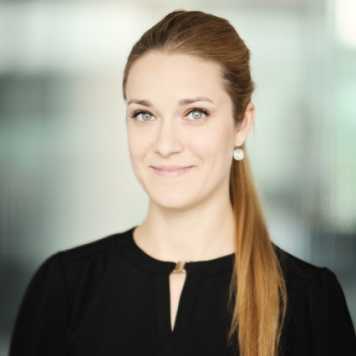
Marta Heisel-Wisniewska is currently working as a researcher at the Chair of Architecture and Construction at the Future Cities Laboratory in Singapore. She received her education at West Pomeranian University of Technology ZUT Szczecin in Poland, as well as at the University of the Arts Berlin between 2004 and 2011. At the Ethiopian Institute of Architecture, Building Construction and City Development in Addis Ababa, she worked as a lecturer and architectural program coordinator, and was part of a research team on refugee shelter design. She also served as a coordinator of a consultancy project for Addis Ababa Institute of Technology AAiT. In 2011, EiABC Student Council recognized her commitment with a ‘Best Teaching’ award.
Photo Gallery
-
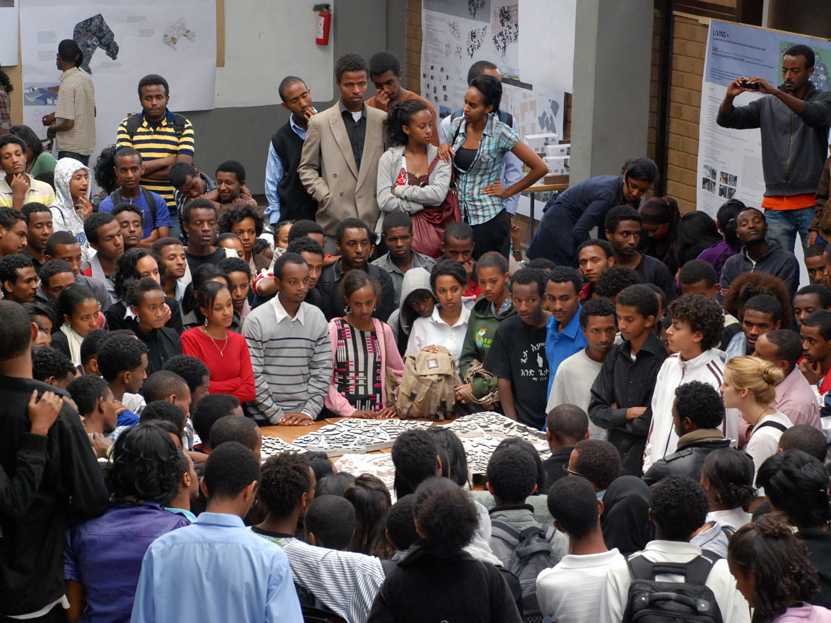
Teaching hundreds of students in one classroom requires flexibility. (Photo: Marta Heisel-Wisniewska) -
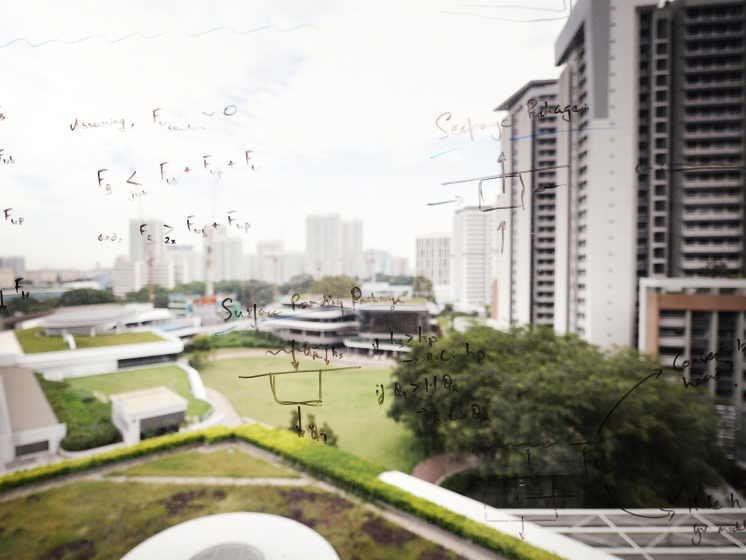
The contrast between Ethiopia and Singapore is vast. (Photo: FCL) -
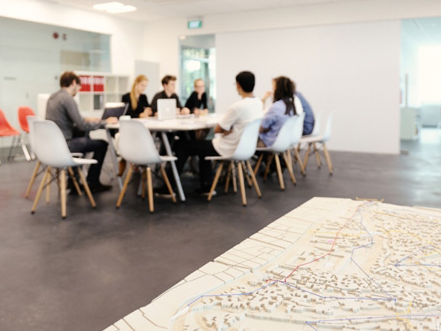
The multinational environment at FCL counterbalances the Singaporean routine. (Photo: FCL)
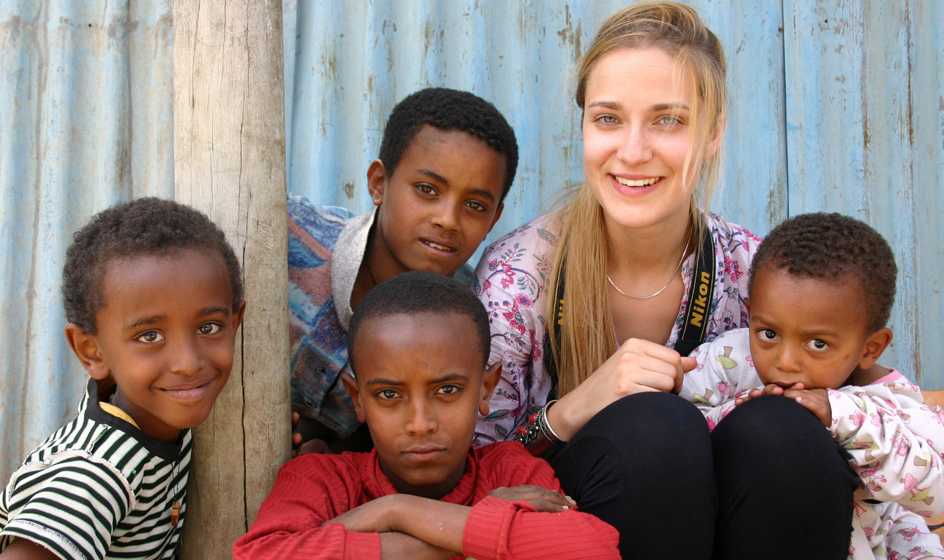
Comments
No comments yet